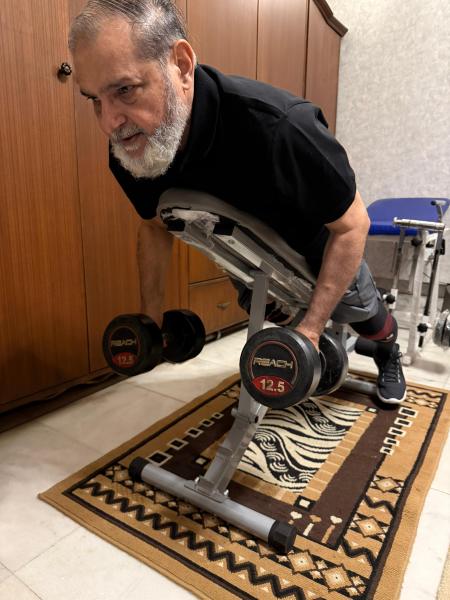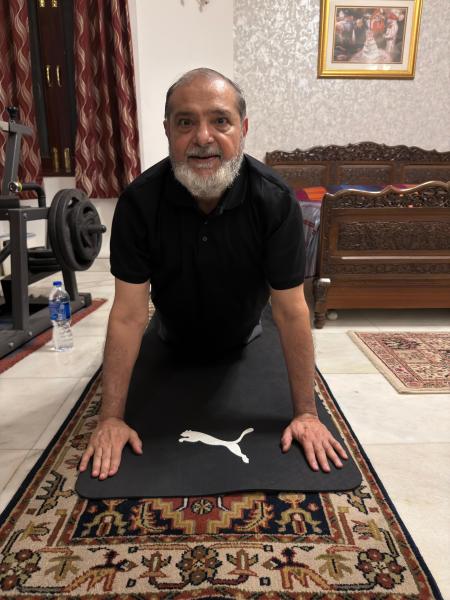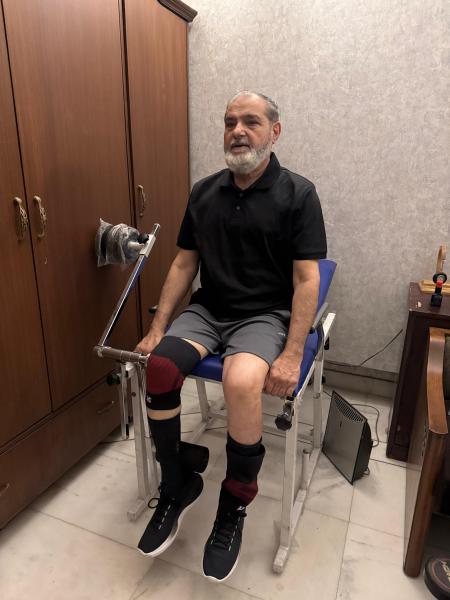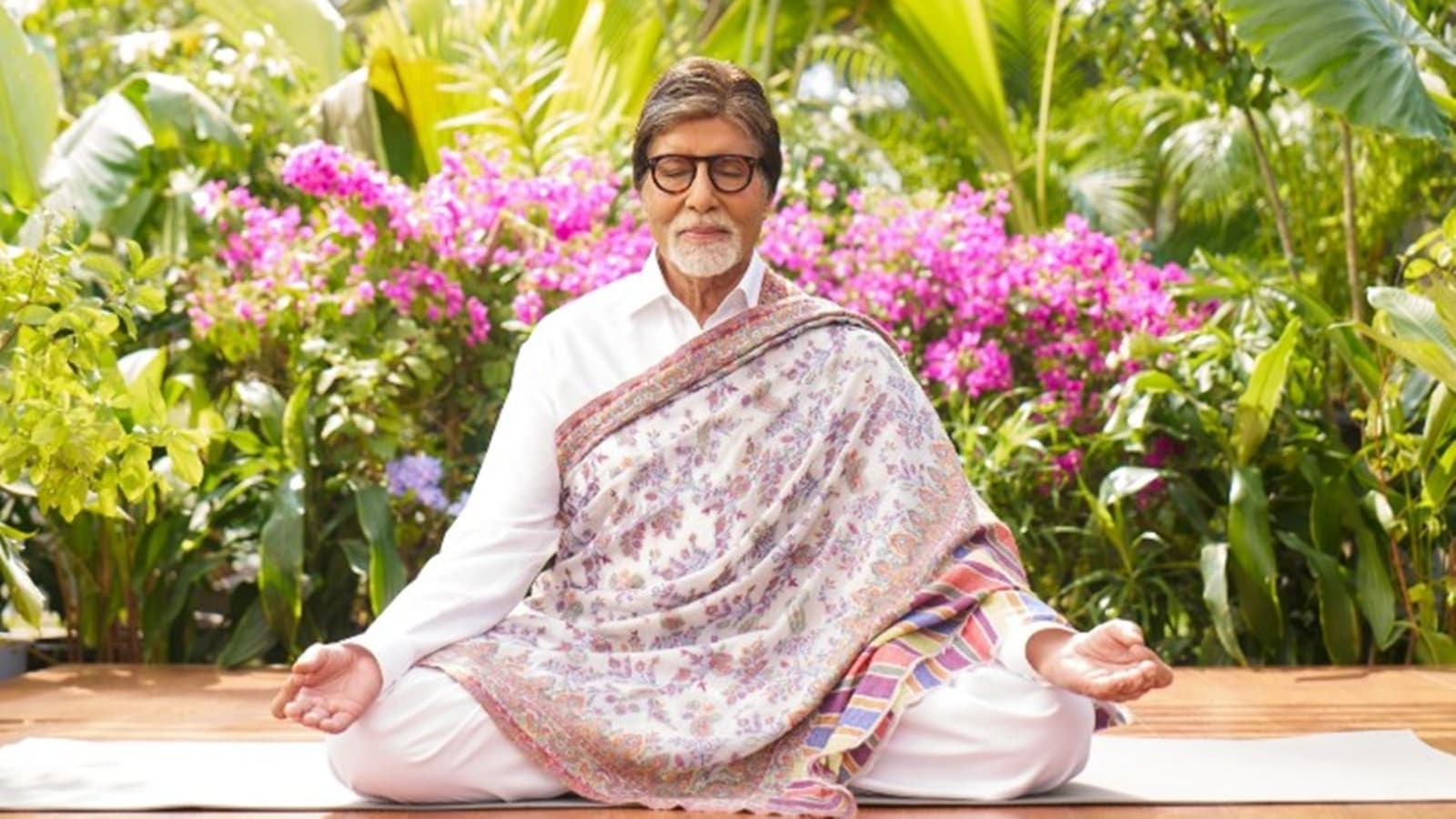Although Bollywood icon Amitabh Bachchan, 82, wrote about the challenges of ageing and balance in his blog post, Dr Mohsin Wali says that the megastar could still be at his busiest best at this age because of his long-term exercise routine and discipline. “Coincidentally, I chanced upon him during an exercise session at St James Court Hotel in London about 25 years ago. I am an exerciser myself and I was most impressed because, unlike Bollywood stars, he woke up real early and devoted time to exercise. That’s the secret of anti-ageing and keeping your balance in old age,” says Dr Wali, senior consultant, medicine, Sir Ganga Ram Hospital, New Delhi and former specialist in Geriatric Cardiology at the University of Michigan.
In his post, Bachchan mentioned how his health is now closely monitored by doctors, how he is advised to sit and wear his pants and how he has handle-bars around the house to avoid falls. His daily routine is now shaped by medicines, yoga and mobility training, he wrote.
“Any age is good to exercise. A lot of patients ask me if they can begin exercising after retirement at 60 after a largely sedentary and stressful work life. I say it is the best time to begin without work bothering you anymore. The human body is extremely adaptable and learns fast. In seven days, the muscles can recondition themselves to a new regime you subject them to. I myself lost 40 per cent of my muscles while battling Covid in ICU but my previous exercise drills helped me bounce back while muscle memory helped me begin again,” says Dr Wali, who, at 72, exercises for an hour 8.30 pm onwards every day once he reaches home after his OPD.
Why do the elderly need to build muscle?
Story continues below this ad
That’s needed so that you can avoid falls and move around independently. Without exercising, your muscles start wasting (sarcopenia) from age 45. They shrink and your posture and gait get affected. The ICU admission rate goes up for such elderly people. Their falls increase and their lifespan reduces. Sarcopenia leads to a decline in the amount and quality of muscle tissue, particularly in the lower limbs, which are crucial for maintaining balance and mobility. Sarcopenia can affect daily activities, such as standing, walking and climbing stairs, further increasing the risk of falls and injuries.
 Working out with dumb bells
Working out with dumb bells
With pollution anyway shortening lifespans, it is important that we exercise to counteract that effect. I have a 94-year-old patient, whose angiogram was fine and who had no signs of diabetes or dementia either. All he did was walk, climb stairs and eat clean.
Of course, each person’s session has to be individualised rather than saying “exercise for 25 to 30 minutes.” First assess which muscle groups are weak — usually it’s the back and knee muscles — and then work on them under supervision. A trainer and a tutorial video help.
How important are breath exercises?
As people age, their lung capacity goes down. But breathing exercises, especially deep breathing, can help restore some of that capacity, ensure better oxygen exchange and deliver more oxygen to cells, improving energy levels and cognitive function.
Story continues below this ad
 Low impact-based exercises are the best.
Low impact-based exercises are the best.
I had lost 70 per cent of my lung function to Covid. I was able to regain it after deep breathing exercises and conch shell-blowing, the last strengthening my respiratory muscles.
What activity is best for brain health?
Word games and crosswords boost brain function. As I served three Presidents as their physician, I learnt a lot from them. Former President R Venkataraman would not lift his head till he had solved his crossword. Pranab Mukherjee would walk 4 km daily between 4.30 and 5 am. Early morning walks improve blood flow to the brain and keep you alert. During a review, a doctor said Mukherjee’s knee was like a man of 40.
Which exercise routines are best for the elderly?
Swimming helps in movement and balance. The buoyancy of water reduces stress on joints, making it ideal for seniors with arthritis or mobility limitations. It also helps improve muscle strength, increase lung capacity and boost mental well-being. It can help lower blood pressure and reduce the risk of heart disease and stroke. Swimming strengthens the core muscles and improves overall balance.
 Chair-based calf pumping
Chair-based calf pumping
Low impact-based exercises are the best. I would suggest chair-based calf pumping, wall push-ups, seated leg lifts, hand grip squeezes and seated, straight leg-holds. Sometimes you can add weights while doing chair squats, do knee exercises with resistance bands, do chest presses, dumb bells, rowing and planks (the last not more than 3 minutes).
Why you must watch out for the sodium-potassium balance
Story continues below this ad
That’s because too little sodium and too much potassium can cause an imbalance and confusion. Diuretics are a disaster in old age because they increase sodium excretion. Hydration is important as most elderly people avoid drinking water to avoid trips to the loo. Drink beverages not more than twice or thrice a day.

